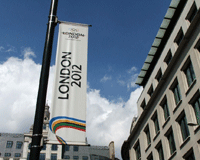 MIPIM Japan: Tokyo is aiming to learn from the example of London in creating a lasting, viable legacy after the city plays host to the Olympic Games in 2020.
MIPIM Japan: Tokyo is aiming to learn from the example of London in creating a lasting, viable legacy after the city plays host to the Olympic Games in 2020.
Speaking in a keynote address this morning at the MIPIM Japan conference, Yoichi Masuzoe, governor of Tokyo, said that he had created a legacy committee to think about the impact of the Games on the city, and had travelled to London last year to look at the impact made on the UK capital.
In the future, Masuzoe told delegates, he wanted Tokyo to overtake New York and London to take the top position of cities globally.
“There is a lot to learn from London,” he said. “London became the number-one city to come to after the 2012 Olympic Games, because the work of the city didn’t stop with the end of the Games. This is the kind of development I would like to see here in Tokyo.”
International businesses that left Tokyo over the past 20 years, often relocating to Singapore, were being enticed back by business-friendly politics, Masuzoe said. Ten business districts will be developed over the next few years in preparation for the Games.
Among other infrastructure improvements, Tokyo is opening a new metro station, new rail links to the airport, and a number of new ring roads, which Masuzoe said would reduce traffic in the centre of the city by 50%. The local government is also investing in green energy and energy-efficient cars. And the government is to promote the use of bicycles around the city during the Games.
Translation services and better wifi services – often cited as a problem across the city – will be stepped up too.
The bay area of the city is undergoing substantial redevelopment, and will be home to the Athletes Village during the 2020 Games.
“We need facilities that can be utilised after the Games,” he said. “And I want to see a freeing of minds as much as these things. I want to turn Tokyo into a city free of barriers.”
By 2030, the population of Japan is forecast to rise to 37m.
Following on from Masuzoe’s speech, Jesper Koll, managing director and head of Japan Equity Research at JP Morgan Securities Japan, said a number of fundamental factors were working in Japan’s favour.
These were predominantly, he said, the certainty of a business-friendly regime, the effect of a unifying rival in China and a structural labour shortage. There is an ongoing concerted effort to attract international business back to Japan, he said.











